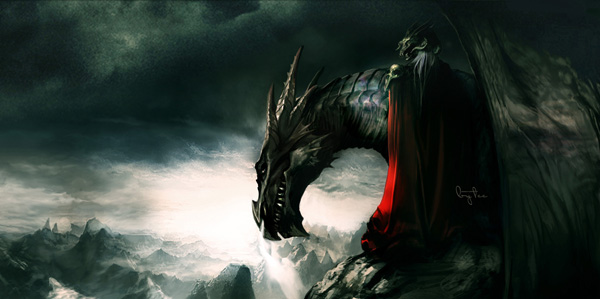Toward the beginning of Magic by the Lake, when they find themselves with more magic than they know what to do with, Edward Eager’s four young protagonists convince a turtle to grant them three wishes so they can better manage things.
Martha, the youngest, blurts out their final wish:
“‘And nothing scary,’ said Martha.
“‘Granted,’ said the turtle, ‘and that is absolutely all.’
“The other three turned on Martha. ‘What did you have to go and ask that for?’ said Jane. ‘Now it’ll be all tame and namby-pamby and watered down! Like those awful children’s editions of books that Aunt Grace always gives us!’
“‘That Three Musketeers with Lady De Winter left right out!’ said Mark.
“‘Excavated versions, I think they’re called,’ said Katharine. ‘You can see why.’”
Edward Eager understands something about the unique pleasures of childhood fear. A ghost story around an autumn campfire, that giant who grinds boys’ bones to bake his bread, St, George’s dragon with a “huge, long tail, speckled red and black” that “wound in a hundred folds over his scaly back and swept the land behind him for almost half a mile” and a “head more hideous than tongue can tell” with “three rows of iron teeth ready to devour his prey”—these are the things that set my sons’ hearts racing and put smiles on their faces.
C.S. Lewis insisted that “an ordinary child… wants to be a little frightened.”
It’s true, I think. Our children want to be scared. And a bit of fear isn’t just pleasurable; I’m convinced it’s actually a good thing. But whatever we think of fear, and however we try to tame it, we have to start by admitting that it’s simply there.
Theologian Russell Moore has written that this natural fear is given by God:
The problem is, our kids know there are monsters out there. God put that awareness in them.” Elsewhere, Moore said in an interview that this childhood fear is “exactly right—what you deeply fear is indeed the case… Your worrying about the monster under the bed isn’t unreasonable: There’s a monster under the fabric of the cosmos.”
So, why did God put this awareness—this fear—of monsters in our children? So they will long for someone to relieve their fears: “They’re looking for a sheep-herding dragon-slayer, the One who can put all the wild things under His feet” (Moore again).
In other words, we fear the dragon in part because it causes us to long for Christ.
Ours is not a tame, pastoral world. There are monsters under the bed and in the closet and lurking in the shadows. Our children know this. As their parents, we have two responses:
We can teach them that there’s actually nothing to fear, and then they will never long for someone to save them.
Or, we can give them safe, age-appropriate outlets for their fear that encourage them to long for the Christ who will one day put their fears to rest, the god-man who has crushed the dragon’s head beneath his heel.
There’s one more essential element to stories like Beowulf and St. George and the Dragon: The dragon is killed in the end. If we want their fears to point our children to Christ, we must tell stories in which the heroes actually win.
After all, if our children don’t believe these endings are possible, they’ll never believe that’s how the story actually ends.
- On the Goodness and Glory of Things - May 17, 2021
- The Holy Longing of Happily Ever After - October 28, 2019
- Jack the Giant-Hugger - March 25, 2019

Excellent article. I’d add, though, that there’s one more reason to have dragons (and other slimy, squamous, slithery things) in stories: They point to what happens when things are done wrong. That’s what makes The Pirate Cruncher work. Horror happens when we abandon the moral order imbued in creation by God Himself, and we all need to be reminded of that in our stories. Just look at the book of Judges.
This is wonderful. Thank you, Josh!